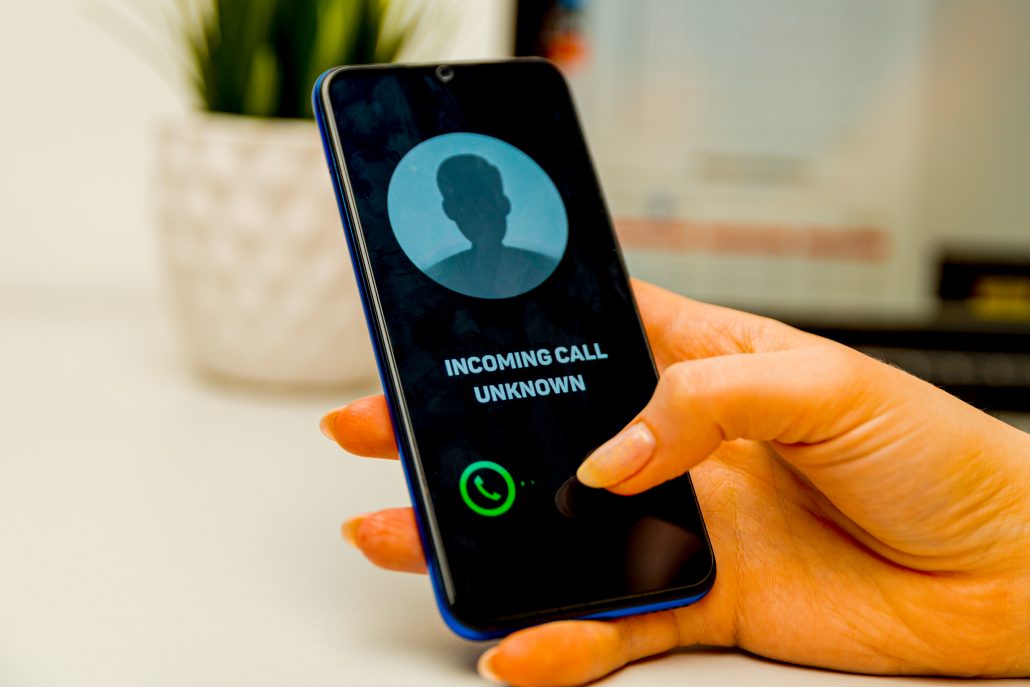Phone Scams, Hacks and Malware: What You Need to Know
phone hacked, phone hacker prevention, business mobile phone
In March 2020, everything changed. Overnight, offices emptied and whole workforces moved into home offices. Zoom replaced boardrooms, and corporate IT departments scrambled to find and set up enough laptops to keep everyone adapted.
Tech became central to business. At the same time, the world saw exponential growth in online scams and cybercrimes. Hacking, ransomware and phishing flourished, and more and more businesses of all sizes became victims of high-tech crime.
But, while corporate IT professionals were able to plug security holes on laptops and computers, there is still a big hole in most corporate tech networks: business mobile phones and mobile devices. Phone hacker prevention isn’t even on most people’s radar until it’s too late.

Why Do Phones Matter?
You might be thinking that if your network is secure, and your computers are secure, you’ll be okay. You’ve battened down the digital hatches, and you run a tight ship.
But when it comes to technology, and to cyber criminals, there is a lot more than meets the eye.
Hackers around the world have used children’s video baby monitors to view inside people’s homes. Criminals spoof numbers to scam unsuspecting victims. Sneaky attackers use ports on devices like printers and even internet connected fridges to break into home and office networks.
One of the most used and least protected devices in your business network is the phone and cellphone.
Employees use them to connect to corporate email. They might use them to log into intranets or for other work-related purposes. Every time they do, they open a potential backdoor into your system, and the opportunity for a hack to occur.
How Do Hackers Exploit Phones?
There are several ways that hackers might use your corporate telephone systems. These include:
- Call forwarding, where criminals break into phone networks and forward calls to a premium rate phone number.
- Voicemail hacking, again, where calls are routed to a foreign or premium rate phone number.
- Malware installed on cellphones, giving hackers access to passwords and corporate information.
- Using cellphone synching to automatically install malware or keyloggers on company computers.
- Phishing, by sending fake texts or emails to cellphones, requiring login to corporate email or other accounts, allowing the hacker to take over the account.
- Ransomware, which can be installed on phones and tablets as well as computers.
Even something as simple as answering a call from a spoofed number and providing information to the wrong person can be risky for companies.

Preventing Phone Hacking
There are several ways you can protect your business mobile phones and prevent phone hacking. These include:
- Requiring employees to set strong voicemail and device passwords.
- Block international calls from mobile phones and other devices. This can be done by choosing a local only phone plan, or you might be able to do it with the phone provider.
- Limit the per minute call rate phones can make.
- Educate employees about common hacking practices and scams.
- Set auto disconnect features on calls – so that if calls are routed without the user knowing about them, they will not remain active indefinitely.
- Require employees to install anti-virus and anti-malware software on all devices.
- Only activate features like data roaming on phones that require it.
- Limit the publication of employee direct lines and cell phone numbers.
There will always be new scams and new ways to hack technology out there, and it takes constant vigilance to prevent it from happening to you.
If you have not considered how your phone systems might be vulnerable, it’s a good idea to speak to your provider sooner rather than later. There are software options as well as service-based settings that can help to prevent phone hacks and scams, or that can limit the costs you face.
Be proactive. Don’t wait until you get a huge bill or find that your network is compromised. Technology is fantastic, but it is also a potential backdoor into your business! Contact us today!


